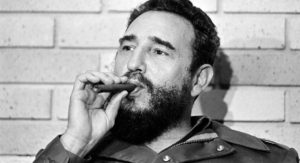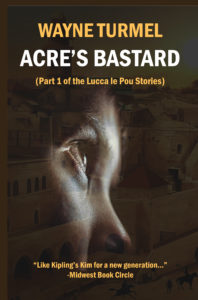The test of a first-rate intelligence is the ability to hold two opposed ideas in mind at the same time and still retain the ability to function.- F Scott Fitzgerald.

Fidel Castro is dead. That is objectively true. Pretty much everything else is open to interpretation. He was a fighter for oppressed people against Batista and around the world (assuming you felt oppressed and didn’t welcome your oppression in the name of employment) or a torturer and despot with no redeeming features (basically everyone who didn’t fall into category one). The fact that he was both is precisely why I love historical fiction. Two opposing ideas at once might be a bit disorienting, but Sweet Baby Jesus, it makes for fun reading.
Historical novelists tell stories based on the past. In a just world we get both sides of the story- and I suspect over the next couple of years we’ll be buried in an avalanche of novels from the Caribbean Jungles in 1959. Most will tell of noble families driven to Miami by the socialist hordes. Some will travel with Fidel and Che through jungle heat and the rolling decks of the Granma to defeat American gangsters and whatever the Latin version of Oligarchs are. (The underdog is way more romantic, hence white liberal college girls wearing Che tee shirts even though he despised everything they are. After the Revolution there will be no Pumpkin Spice Anything!) Either way I can’t wait. Both sides will have wonderful adventures to tell and characters that we’ll love and hate. If you can’t wait, start with the stories of Leonardo Padura Fuentes.
One of the things I try to do in this blog is find voices on both sides of a story. For example, I am a huge fan of Washington, Jefferson and the Founding Fathers. As a Canadian, though, I am also aware of the other side of the story. After a couple of pints, I love telling the story of the American Revolution from the “other side.” Those poor patriotic, god-fearing British subjects driven from their land by godless radical liberal terrorists are wonderful characters that we don’t hear from often enough on this side of the 49th Parallel. Plus Canadians burned down the White House thirty years later. Scoreboard. Yes, I put my Green Card at risk, but it’s soooooo worth it to hear the screams of outrage. And yes, to answer your next question, I’m a bit of an obnoxious drunk.
In my new book, Acre’s Bastard, I try to walk a similar line with the Crusades. 
Were the Franks godly men, driven by holy purposes or simply a bunch of fourth sons and ne’er-do-wells looking to get rich and establish themselves when Feudal law left them powerless at home? Was Saladin (or Salah-adin) freeing Syria of foreign invaders in the name of Allah, or a rebel Kurd conducting a power grab at the expense of local Muslim warlords? There are plenty of stories on both sides that should be told and enjoyed. I decided to pull most of my research from the Muslim accounts just because readers will be less familiar with them (thus the spelling of Salah-adin) and I hope they enjoy the result. Doubtless I’ll annoy the crap out of other people. Such is life.
I love historical fiction because I can get stories that are both familiar and challenge my beliefs and what I think I know about a given topic. Hopefully you do too.
Was Castro a hero or a villain? Yes. Here’s hoping we get great stories to help us decide for ourselves and still be able to function.
